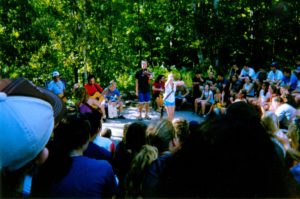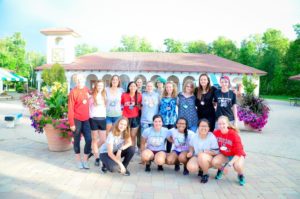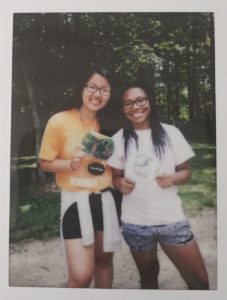“So, what made you decide to major in [insert language of choice here]?”
You must hear this a lot – in casual settings with friends and family, or in professional settings with professors, advisors, or interviewers. Sometimes it is hard to sufficiently describe your love for languages, and even then, that might not be accepted as a sufficient answer by whoever it is you are speaking with.
This is one of the obstacles of being a foreign language major. Being able to navigate this question and demonstrate to others that language-learning should not be simply a hobby and is a tangible, feasible field of study is an essential skill. From this obstacle, you learn to talk about how other skills you have gained from studying languages has empowered you in different contexts.
For me, one of the most tangible skillsets that you can attain from studying languages is human relations skills. Luckily, progress and growth in this particular skill is evident in how you interact with others, as that is essentially what human relations entails. Being a foreign language major emphasizes your empathy and sensitivity to cultural differences, your ability to relate to other people and their experiences to create meaningful relationships, and your ability to tackle uncomfortable situations with professionalism and adapt.
Personally, the three aforementioned abilities are closely intertwined with each other. As a foreign language major, one of the best ways to hone my own language skills is to throw myself into settings of complete immersion. After all, you learn something the best and the quickest when you need it to “survive” somewhere. (“Survive” is used loosely – you wouldn’t die from not being able to communicate, but it definitely makes your life easier.)
At the same time, as a young adult who has the privilege to access higher education, one of the best ways to acknowledge my opportunities is to reach out to communities who may not have the same resources. This involves empathy, being able to see beyond just yourself and things solely beneficial to you, and being able to address that gap appropriately.
I have been able to develop these human relations skills through working with Project SHINE, which is an organization that focuses on helping immigrant populations in America. Although, yes, you could gain these skills without a foreign language major, I truly believe that your skills would not grow to the fullest potential. As someone who is trying to learn to communicate in a foreign language, you would better understand and better be able to relate to those who come to America and try to learn English. Your struggles in the classroom relate to their struggles in English as a Second Language classrooms, or even outside the classrooms. Knowing how to navigate a language barrier teaches you to be patient, attentive, and supportive when you have been in similar (although, to a lesser degree) shoes. Your human relations skills also comforts whoever you work with because they realize that they are not alone in the process, and this builds meaningful relationships with the people you serve.





